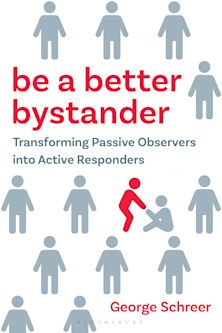- Home
- ACADEMIC
- Psychology
- Social Psychology
- Fooling Ourselves
Fooling Ourselves
Self-Deception in Politics, Religion, and Terrorism
Fooling Ourselves
Self-Deception in Politics, Religion, and Terrorism
You must sign in to add this item to your wishlist. Please sign in or create an account
Description
Self-deception occurs because we often see the world the way we would like it to be, rather than the way it is. Our brains so long for things the way we want them, we might not even be aware we are fooling ourselves, explains author Harry Triandis, a widely known Professor Emeritus of Psychology. Across cultures and around the world, self-deception is a phenomenon that has subtle and profound effects on everyday life, explains Triandis, also former president of the International Association of Cross-Cultural Psychology. In this work, he not only explains how and why self-deceptions occur in three areas - politics, religion, and terrorism - but also how to recognize and reduce the frequency of fooling ourselves.
Insights here include consideration of personal and societal self-deceptions, as well as extensive understanding of how politics, ideologies, and religions can frame reality for each of us in such a way that it is, in our minds, warped so the stage is well-set for self-deception. This text will be of special interest to general readers drawn to politics and religion, as well as scholars of psychology, anthropology, and sociology.
Table of Contents
1. HOW CAN WE AVOID FOOLING OURSELVES
2. INFORMATION PROCESSING
3. FOOLING OURSELVES ACROSS CULTURES
4. FOOLING OURSELVES IN POLITICS
5. FOOLING OURSELVES IN RELIGION
6. FOOLING OURSELVES IN TERRORISM
7. WHAT CAN WE DO?
REFERENCES
Product details
| Published | Dec 30 2008 |
|---|---|
| Format | Ebook (PDF) |
| Edition | 1st |
| Extent | 276 |
| ISBN | 9780313364396 |
| Imprint | Praeger |
| Series | International Contributions in Psychology |
| Publisher | Bloomsbury Publishing |
About the contributors
Reviews
-
A respected, internationally known expert on cross-cultural issues in psychology, Triandis (emer., Univ. of Illinois)
offers here what is perhaps his most important piece of work. . . . Required reading for all concerned citizens. Summing Up: Highly recommended.Choice
-
After first seeking to demonstrate the widespread nature of self-deception and its harmful effects on well-being, he
discusses cultural similarities and differences of individualist and collective self-deception, the ways that self-deception leads to poor information processing in politics, the self- deception of religion and the paradoxical human need for spirituality, the kinds of self- deception among terrorists, and means to decrease self-deception.Reference & Research Book News

ONLINE RESOURCES
Bloomsbury Collections
This book is available on Bloomsbury Collections where your library has access.



































